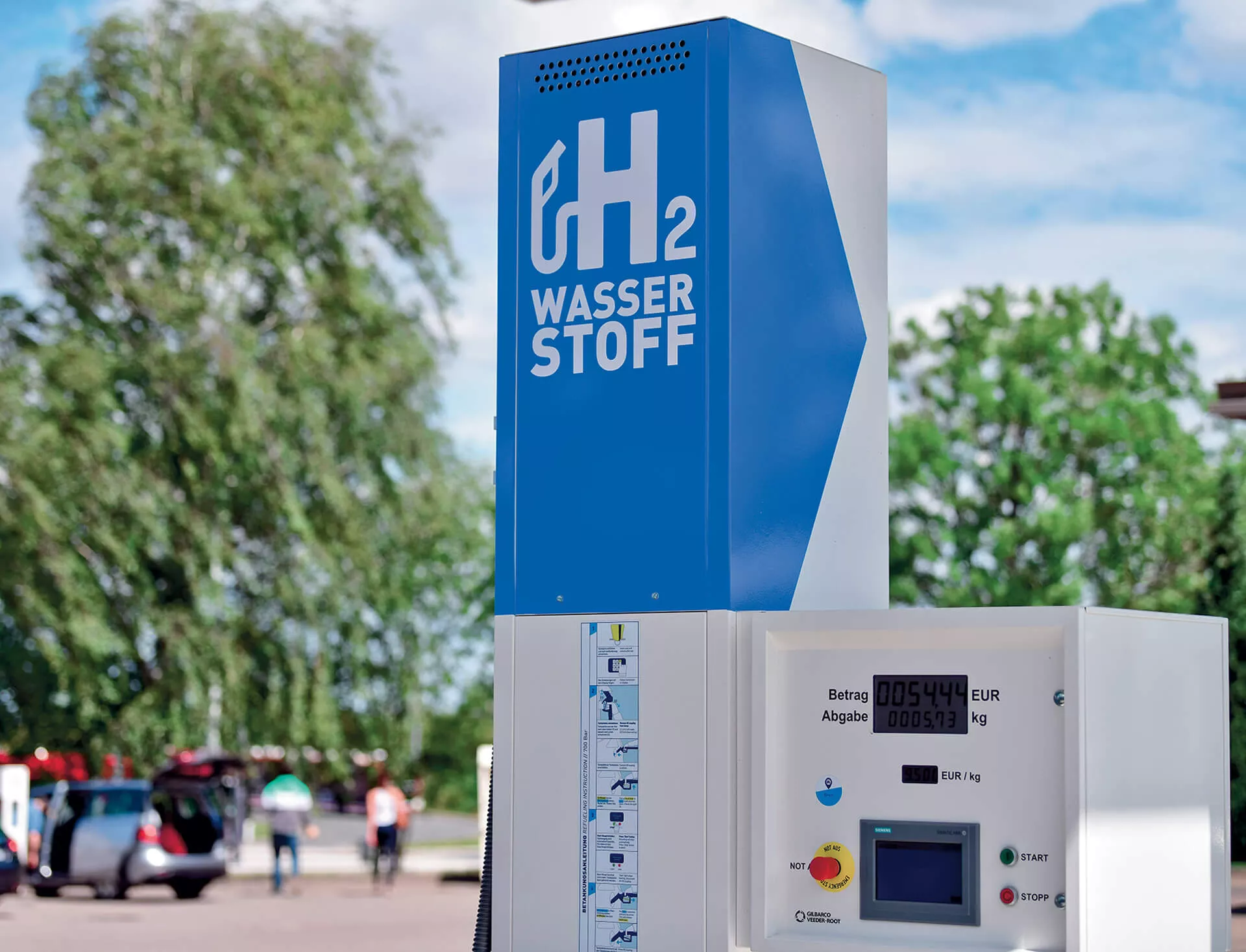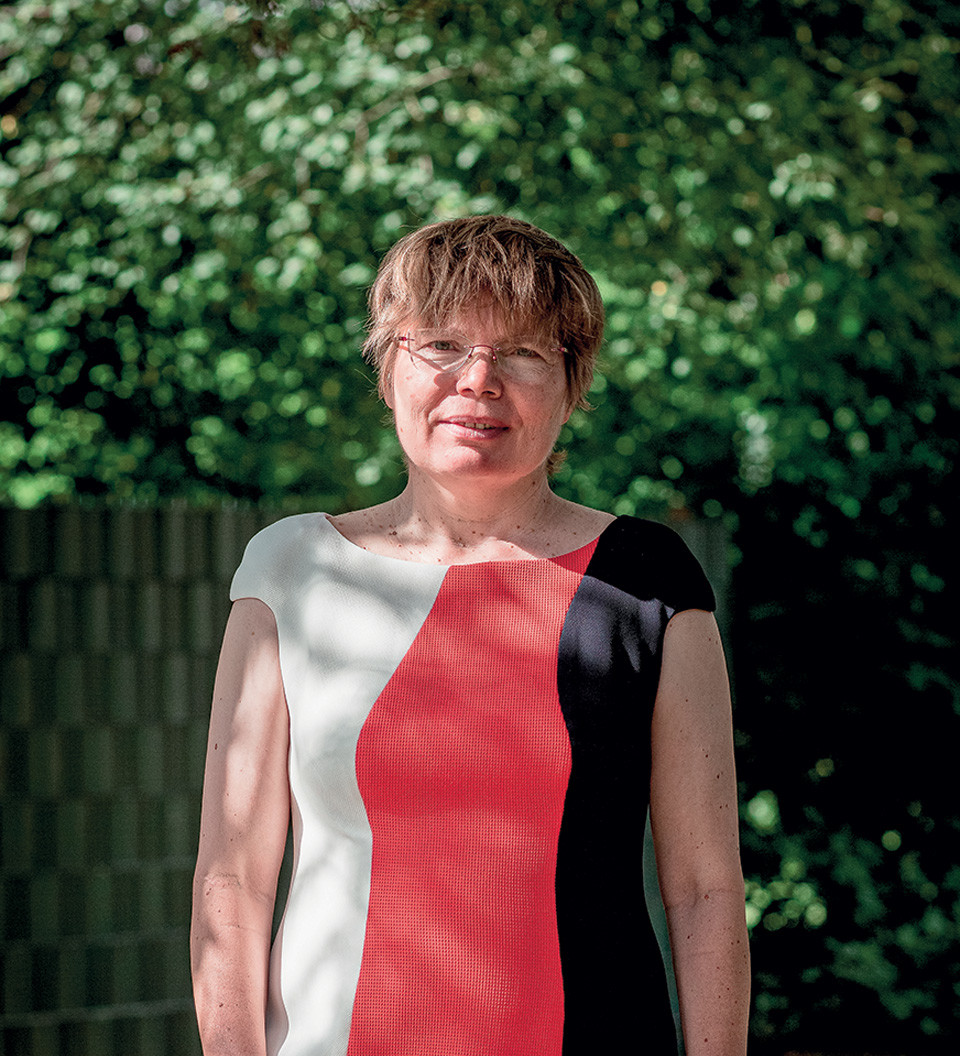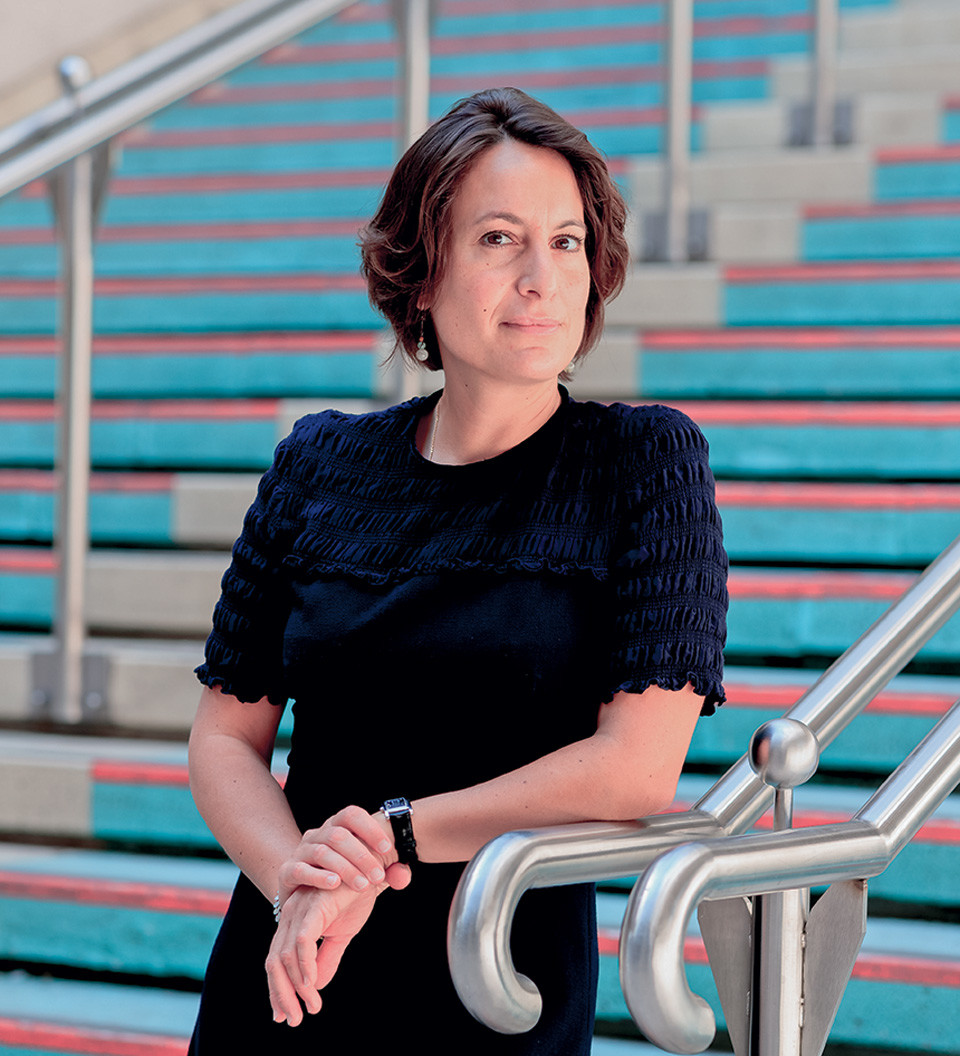
Hydrogen: a new hope for the planet



BABETTE NIEDER
is hydrogen coordinator at an economic development company in the Emscher-Lippe region in the Ruhr area of Germany.

CHRISTELLE WERQUIN
is general delegate of the French Association for Hydrogen and Fuel Cells (AFHYPAC).
COUNTRIES ACROSS EUROPE ARE JOINING FORCES TO BUILD A NEW HYDROGEN SECTOR — FROM SCRATCH. HOW WILL IT RESPOND TO CURRENT ENVIRONMENTAL PROBLEMS?
Babette Nieder: The climate objectives set out in the Paris Agreement will simply not be achieved if we do not reduce global greenhouse gas (GHG) emissions more quickly. In the face of a climate emergency, hydrogen production will be game-changing as it will ‘decarbonise’ the energy used in many sectors which emit GHGs such as transport and industry. Europe, which has set itself a carbon neutrality objective for 2050, appears to have understood this, launching the ‘Clean Hydrogen Alliance’ on 8 July 2020. Germany aims to become the world champion in this field and is mobilising nine billion euros as part of its stimulus plan. It has prioritised green hydrogen, produced from renewable energies (wind and solar).

Over the long term, hydrogen could fulfil 20% of final energy demand in France.
SO THIS IS THE SECTOR OF THE FUTURE?
Christelle Werquin: Well, the key players in the French hydrogen sector are certainly convinced of this! Hydrogen is essential for a successful energy transition. In the long term, it could represent 20% of final energy demand in France. It also represents a real opportunity to create new markets (technologies) and industrial jobs. Many countries around the world are also investing heavily in its deployment, including China, Japan and South Korea, as well as California in the United States. A global race is well underway and the first major investors will be the big winners. In France, the time has come for scaling up: the announcements by Ministers Bruno le Maire and Barbara Pompili on 8 September during an event organised by AFHYPAC demonstrate this well. We have an ambitious and coherent strategy here, just as we had hoped for. France also wishes to engage in European partnerships, in particular with Germany, within the framework of an “important project of common European interest”.
What is Hydrogen
Hydrogen is the simplest chemical element: its nucleus consists of a single proton and its atom has only one electron. The hydrogen molecule (H2) consists of two hydrogen atoms. We commonly refer to ‘hydrogen’ when really we mean dihydrogen. Burning 1kg of hydrogen releases almost four times more energy than 1kg of gasoline and only produces water as a by-product.
Hydrogen is very abundant on the surface of the Earth but does not exist anywhere in its pure state. It is always linked to other chemical elements, in molecules like water and hydrocarbons. Living organisms (animal or plant) are also partly composed of hydrogen. Biomass therefore constitutes another potential source of hydrogen.
Extracting hydrogen from these primary resources such as hydrocarbons, biomass or even water, requires an input of energy. As with electricity, we consider hydrogen to be an energy ‘vector’. In other words, it can be used to store energy (that which was used to produce it) until the moment it is transformed and the energy is released to do useful work.
(Source: CEA, www.cea.fr)
Grey, blue, green hydrogen...
‘Grey’ hydrogen is produced from fossil fuels (natural gas, petroleum, coal) using a CO2 emitting steam reforming process. It is the only form of hydrogen currently being used on a large scale (95% of global hydrogen production) in refining and chemicals.
‘Blue’ hydrogen is produced using the same process as ‘grey’ but with CO2 capture and sequestration (CCS) or the recovery of the CO2 (CCU) emitted. These solutions are currently being explored and evaluated.
‘Green’ hydrogen is produced by electrolysis from electricity derived from renewable sources. In France, we also speak of ‘renewable or low-carbon hydrogen’ to mean that it can come from a renewable or low-carbon source such as nuclear power. The electrolysis of water is a process which separates hydrogen from oxygen by means of an electric current without directly causing the emission of greenhouse gases and pollutants.
TODAY, HOWEVER, THE PRODUCTION OF GREEN HYDROGEN IS STILL SOMEWHAT SMALL-SCALE...
B.N.: This is a real industrial challenge for Germany, which is setting itself a target of 5GW of green hydrogen by 2030 and 10GW by 2040. To achieve this, the country will need to develop significantly renewable energies, import hydrogen and, in a transition phase, resort to blue hydrogen with CO2 capture and recovery (see above).
C.W.: France has a major asset in its low-carbon energy mix based on nuclear power and increasingly on renewable energies, which enables renewable or low-carbon hydrogen to be efficiently produced. In 2030, the demand in France for this type of hydrogen has the potential to reach over one million tonnes within industrial, transport or gas distribution sectors.

Green hydrogen has the immense advantage of enabling zero-emission transport through fuel cell technology.
BEYOND INDUSTRY, WILL TRANSPORT BE THE OTHER MAJOR MARKET FOR GREEN HYDROGEN?
B.N.: Green hydrogen has the immense advantage of enabling zero-emission transport through fuel cell technology. In addition, it is in this sector that its price will be the most competitive (compared to the price of diesel). It will be rolled out as a priority in goods or public transport even if the German strategy also provides for subsidies to promote the purchase of private cars running on hydrogen. To create a market in this industry and make the necessary infrastructure (such as recharging stations) profitable, a high take-up for fleets of trucks, utility vehicles, buses, ships and trains is necessary.
With 84 hydrogen service stations, not far short of 100, Germany has the leading European hydrogen network. In rail, hydrogen is also set to grow. In Europe, half of railways are not electrified and hydrogen represents a credible alternative to diesel or electrification, both of which are still very expensive. Alstom’s Coradia iLint is the first hydrogen-powered train used for travel in the world. It currently operates in Lower Saxony in Germany and several new orders for this train have been placed.
C.W.: The issue of decarbonisation lies at the heart of transportation, which represents more than a third of GHG emissions in France. But the deployment of vehicles and the charging infrastructure needed to service them must be undertaken at the same time. In France, the model is based on captive commercial and public fleets (intervention and delivery vehicles, taxis, buses, dustbin lorries, etc.) which optimise the use of recharging stations and thus reduce costs. In order for demand to take off and consolidate, public or private group purchasing becomes a crucial lever, as illustrated by the example of the hydrogen bus with a set target of 1,000 buses to be ordered or deployed by 2024. Experiments are taking place in several regions, notably in Auvergne Rhône-Alpes with the Zero Emission Valley (ZEV) project. And now, as part of the plan presented last September, the target deployment is 300,000 light vehicles, 5,000 heavy vehicles, 250 trains and 1,000 hydrogen-powered boats, supplied by 1,000 charging stations by 2030. The use of hydrogen-powered passenger cars is also expected to grow within ten years.
THERE REMAINS THE QUESTION OF THE EVOLUTION OF COSTS. HOW CAN THEY BE REDUCED?
B.N.: To lower costs, we will need to heavily invest in the production of green hydrogen. This is the key to placing ourselves on a path of carbon neutrality without sacrificing industry, the leading emitter of GHGs together with sectors such as chemicals, iron and steel, refining, etc. Steel represents around 30% of global industrial GHG emissions. For Germany, industry is the number one sector for the future demand for green hydrogen and this is both an ecological and an economic issue, given the need to both preserve and create jobs. The German Ministry of the Economy references the creation of 5.4 million jobs in Europe by 2050.
C.W.: In its 2019 report, the IEA estimates that the cost of producing renewable hydrogen could drop by 30% by 2030 due to falling renewable energy costs and increased production. To make renewable and low-carbon hydrogen competitive, we need to scale up and rapidly deploy industrial-scale equipment, in particular electrolysers (see box on page 21). Between 2024 and 2030, the objective of the European Commission is to increase production from 1 to 10 million tonnes of hydrogen and from 6 to 40GW of electrolysis for a total investment of between 24 and 42 billion euros. The electrolysis industry can become a major driver of re-industrialisation in Europe. France has firmly committed to this path by proposing the creation of a competitive French sector for the electrolysis-based production of low-carbon and renewable hydrogen.
Societe Generale joins forces with the Hydrogen Council
In January 2020, Societe Generale became a member of the Hydrogen Council, a global initiative launched on the sidelines of the Davos Economic Forum in 2017 and led by major companies in the energy, transport and industrial sectors. For Societe Generale, it is above all a question of using its expertise in innovative financing and energy advice within the Investor Council, a group dedicated to the study of new large-scale financing methods for low-carbon hydrogen solutions.




